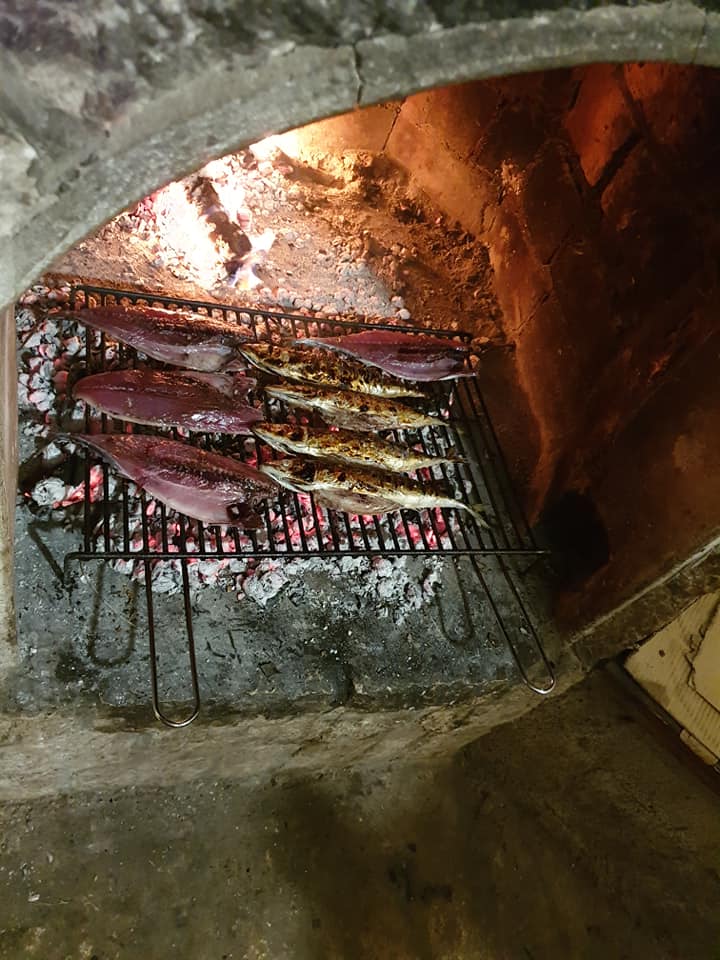Expectations for Croatia's Economy Sink
ZAGREB, April 29, 2020 - Expectations for Croatia's economy sank in April to the lowest level since the European Commission started collecting data, reflecting the pessimism of business people in the European Union and euro area as a consequence of the coronavirus pandemic.
The Economic Sentiment Index (ESI) sank in Croatia by 31 points in April compared to March, dropping to 72.3 points, which is its greatest drop and lowest level since the EC started publishing reports on ESI.
The lowest ESI has been recorded in all sectors except in construction while the services and retail sectors had the most negative sentiment, with a drop of 49 and 47.8 points respectively compared to March.
Industry confidence and construction confidence fell by 27.8 and 28.9 points respectively.
The mildest decrease of 'only' 17.9 points was recorded in consumer confidence which did not plunge to its lowest level, recorded during the height of the euro area crisis in 2009.
The employment expectations indicator too fell drastically, by 29 points on the month, to 76.4 points.
The ESI crashed in April in the EU 27 and euro area and it was its strongest monthly decline on record (since
1985), surpassing by far the previous negative record from March.
In April the ESI in the EU declined by 28.8 points to 65.8 points while in the euro area it dropped by 27.2 points to 67 points.
The pandemic has impacted the most expectations in the services sector due to a ban on travel and hotels, restaurants and cafes remaining closed.
As for the largest euro area economies, the ESI crashed in Germany by 19.9 points, in France it dropped by 16.3 points and in Spain it went down by 26 points, while no data could be collected in Italy due to the strict confinement measures.
More economy news can be found in the Business section.
Hoće li Hrvatska biti bolje mjesto nakon korone? Počinjem vjerovati
29. travanj 2020 - Uz svu zdravstvenu prijetnju virusa, pad gospodarstva i probleme mentalnog zdravlja, je li moguće da će Hrvatska nakon korone zapravo postati bolje mjesto za život? Počinjem vjerovati, a mislim da nisam ni usamljen.
Tko je osoba koju poznajete, a koja je najmanje pogođena koronavirusom? Odvojite malo vremena za razmišljanje, i dok to radite, dopustite da vam ispričam priču o svom legendarnom puncu Franku. Jer on je ključni dio mog razmišljanja da bi Hrvatska poslije korone mogla i trebala postati i puno bolja Hrvatska od one koju trenutno imamo. Kako bih vam objasnio svoju logiku, dopustite mi da vam ispričam nešto o svom puncu.
Franku sigurno nije bio lako u životu, a ipak ga nikad nisam čuo kako se na to žali. Bio je jedno od 10 djece u selu Brusje na Hvaru, te je svaki dan morao pješačiti 6 km do škole u gradu Hvaru, te ponovo 6 km kući. Odjeća je bila iznošena, a hrana oskudna. Luksuzi su bili prava rjetkost, a on nikada u životu nije ništa prerano odbacio.
Prije 50 godina uštedio je malu svotu novca i kupio 360 m2 poljoprivrednog zemljišta na brdu ispunjenom drvećem s pogledom na stari grad Jelsu. Svi su mislili da je lud i da je bacao novac.
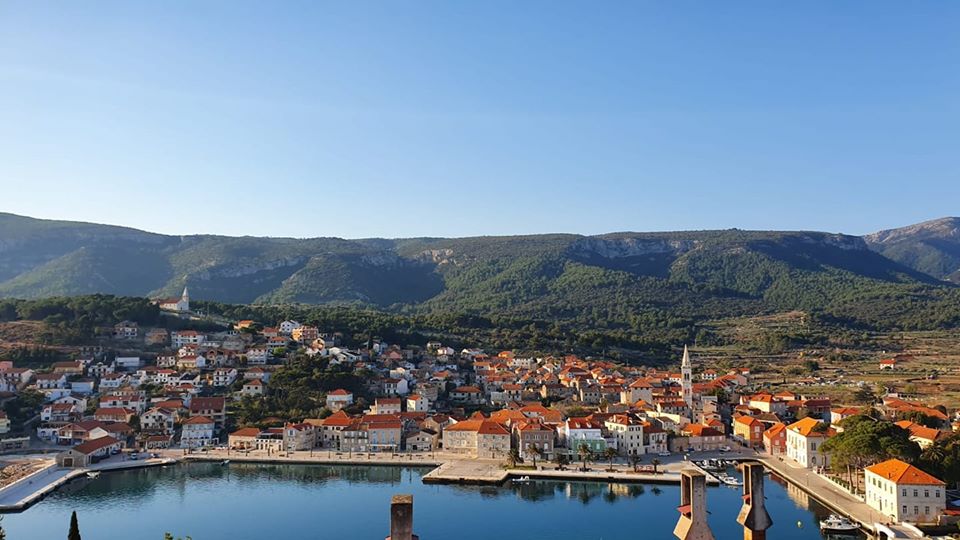
Ali Franko je znao što radi i imao je dugoročnu viziju budućnosti. Komad po komad, kat po kat, polako je gradio svoju obiteljsku kuću, zajedno s apartmanima za iznajmljivanje, prihodom od kojeg je financirao izgradnju sljedećeg kata. Sve je to bilo bez kredita, iz godine u godinu.
Rat je došao 1991. godine, a Franko je kupio zemljište kako bi uzgajao hranu da bi prehranio obitelj u slučaju da neizbježne ratne restrikcije postanu stvarnost. Ljubio je tu zemlju (i susjedne parcele koje je kupio u sljedećim godinama) i svakodnevno provodio tamo sate. Gotovo 30 godina kasnije proizvodi veliku količinu hrane kojom nas hrani tijekom krize uzrokovane koronom.
Nakon što je svo četvero svoje djece omogućio sturidanje , što je prilika koju sam nikada nije imao, a bez ikakvih dugova, život se odvija prilično slično kao prije. Turizam će ovog ljeta biti smanjen, ali životni temelji – zdrav način života na prekrasnom otoku kojeg rijetko napušta, uz domaću hranu, vino, maslinovo ulje – ostaju.
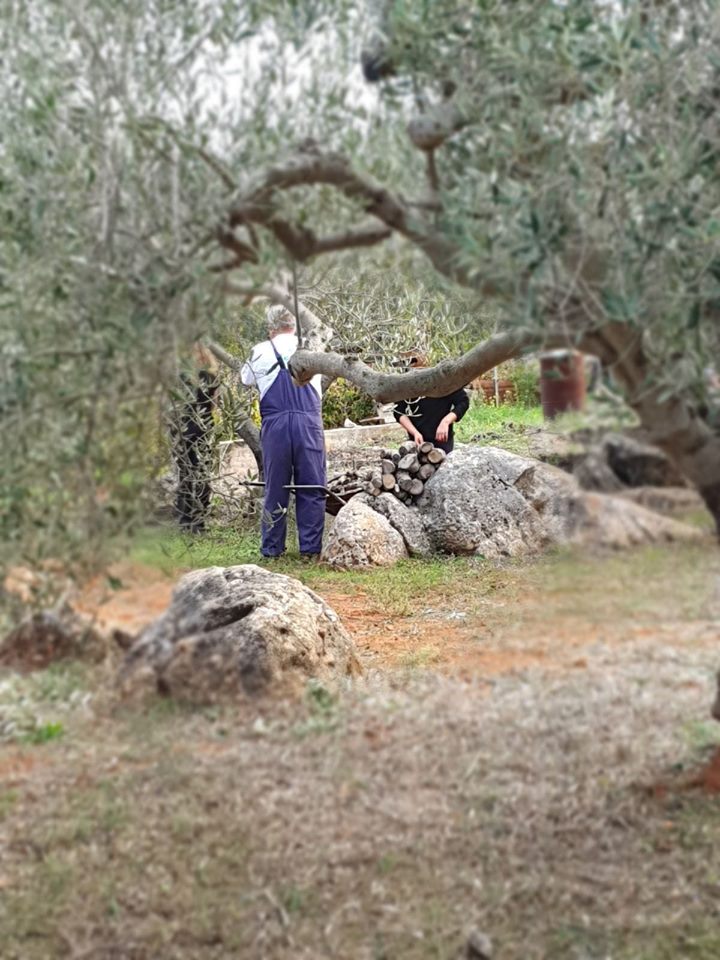
Izuzetno poštujem svog punca zbog svega što je postigao od tako skromnog početka, a ponekad poželim da je dobio zeta koji je čovjek od zemlje, a ne ovog debelog blogera koji stalno pije pivu.
Moj punac je dokaz da se u Hrvatskoj može voditi zdrav i ispunjen život koji se temelji na samoodrživosti i kupnji lokalnih namirnica.
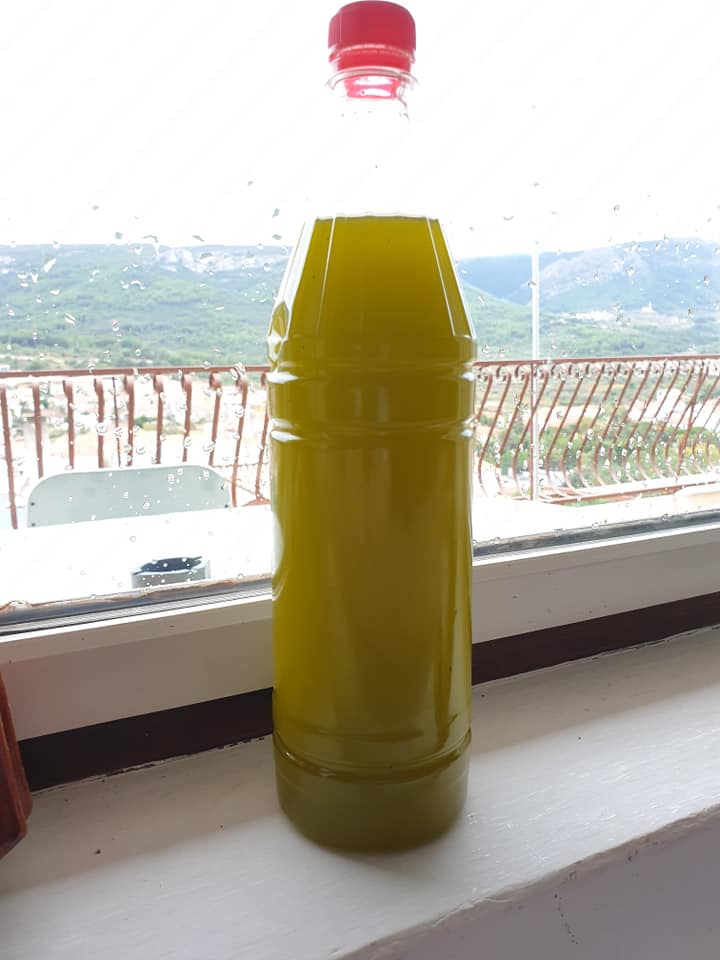
Tema kupovine lokalnog širi se po cijelom svijetu, jer nas je korona prisilila na temeljito preispitivanje gotovo svakog aspekta našeg života. Prisilna samoizolacija i ponovna procjena naših životnih stilova bilo je iskustvo čišćenja za mnoge koji su shvatili koliko im je malo potrebno za preživljavanje i koliko je viška stvari u njihovom životu posve nepotrebno.
Neke stvari će se možda zauvijek promijeniti, poput povećanih zdravstvenih mjera i manje putovanja, ali korona je Hrvatskoj donijela i puno pozitivnih stvari. Pogotovo ako njezini ljudi iskoriste ove mogućnosti ovako neočekivanog izvora. Ja se sve više nadam – gotovo sada očekujem – da će Hrvatska poslije korone biti bolje mjesto za sve nas. Postoji nekoliko aspekata mog optimizma.
Kupujte lokalno i neka Slavonija ponovo hrani cijelu regiju
Jučer sam napravio svoj prvi Zoom video intervju u svom životu. Bilo je to sa slavonskim poljoprivrednikom/poduzetnikom čija je obitelj gotovo 40 godina proizvodila i prerađivala hranu u regiji koja je nekad hranila ne samo Hrvatsku, već i velik dio bivše Jugoslavije. Jedva čekam da objavim intervju i priču, jer je to bila jedna od najzanimljivijih stvari koju sam ikada učinio. U intervjuu smo razgovarali o razlikama u uzgoju hrane u Slavoniji kad je to bila bogata regija i proizvodnji hrane u Slavoniji danas.
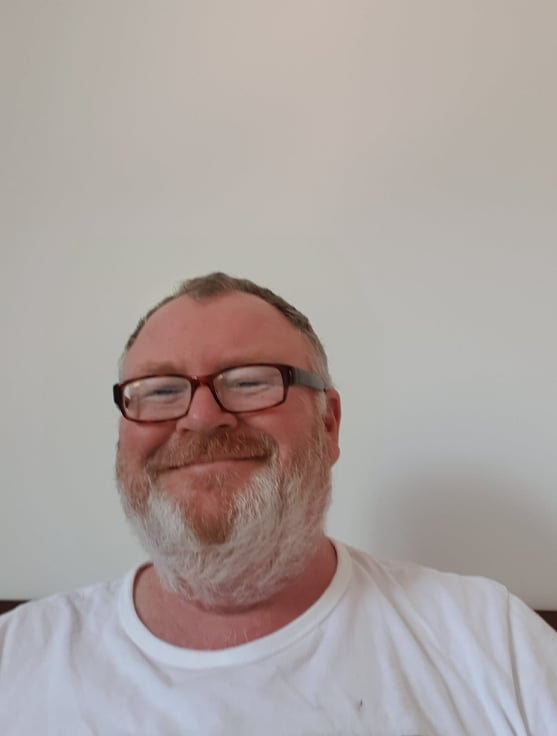
Može li Slavonija još jednom nahraniti Hrvatsku, a možda i njezine susjede?”, Pitao sam.
“Da.”
Očito će rješenje uključivati malo više od riječi “da”, ali razmislite o tome na trenutak. Doba turista koji masovno šalju svoju gotovinu, a sve što trebamo je čekati da dođu, dolazi svome kraju. Zaboravimo prošlost i pogledajmo Hrvatsku danas.
Može li se ona sama prehraniti? Da.
Jedan od velikih pozitivnih utjecaja ove krize bio je taj da je velik broj ljudi počeo kupovati lokalno. Mali OPG-ovi svoje proizvode stavljaju na raspolaganje putem društvenih mreža, a ljudi naručuju. Ovdje na Hvaru postoji sjajna opcija za isporuku lokalnih proizvoda putem Interneta, koja pokriva Hvar, Vis i Šoltu. Onaj luđak iz Đurine hiže u Varaždinskim toplicama, Nikola Božić, obilazi stalno cijelu zemlju dostavljajući steakove najviše kvalitete i druge premium proizvode OPG-ova.
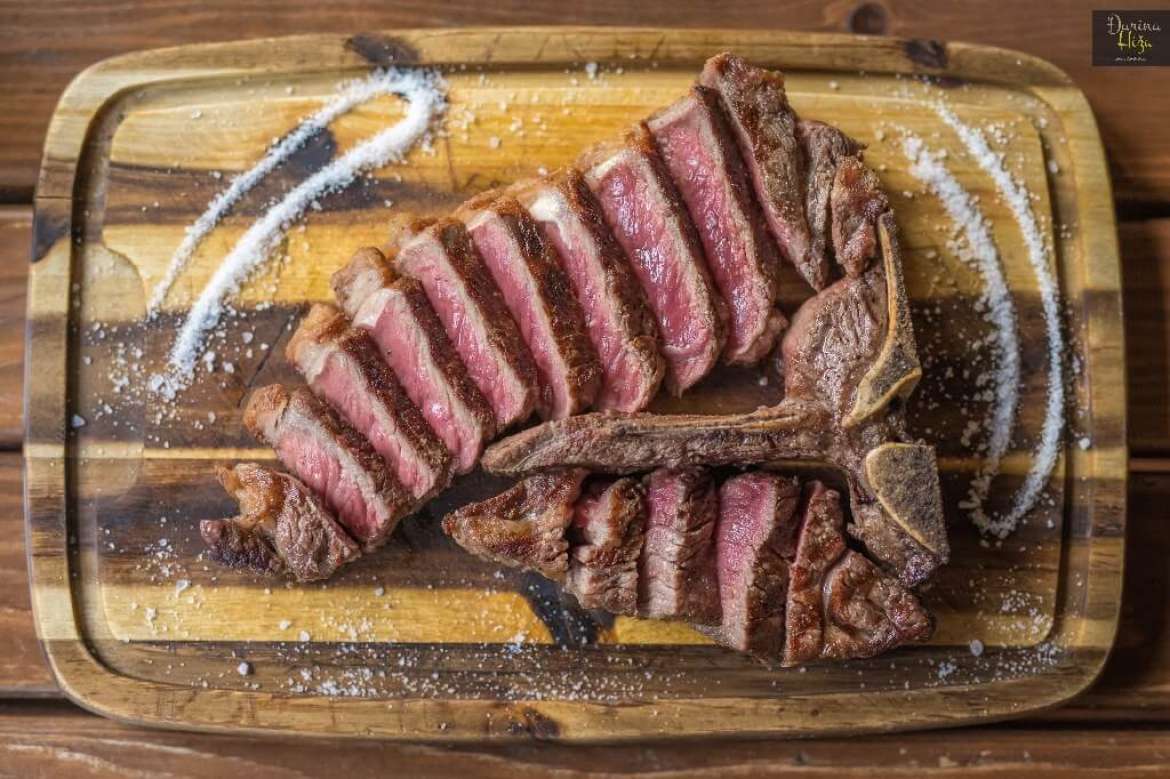
Sve više ljudi se približava ideji uzgoja i kupovine lokalnog. Hrvatska ima izvrsnu hranu, a sve više ljudi shvaća ludost uvoza proizvoda kada ih možemo uzgajati sami. Mislim da je Karlovačka županija prošlog tjedna najavila sredstva za razvoj neiskorištenog obradivog zemljišta. Tehnologija je prijatelj kupovine domaćeg, a nove distribucijske mreže poput one koje razvija Nikola Božić izvrsnu će hrvatsku domaću proizvodnju učiniti znatno dostupnijom krajnjem korisniku.
Vratiti hrvatski poljoprivredni kapacitet tamo gdje ga nije bilo neće biti lako, ali isto tako nije nemoguće. Uz toliko nadolazeće nezaposlenosti, stvorit će radna mjesta – i na kraju izvoz.
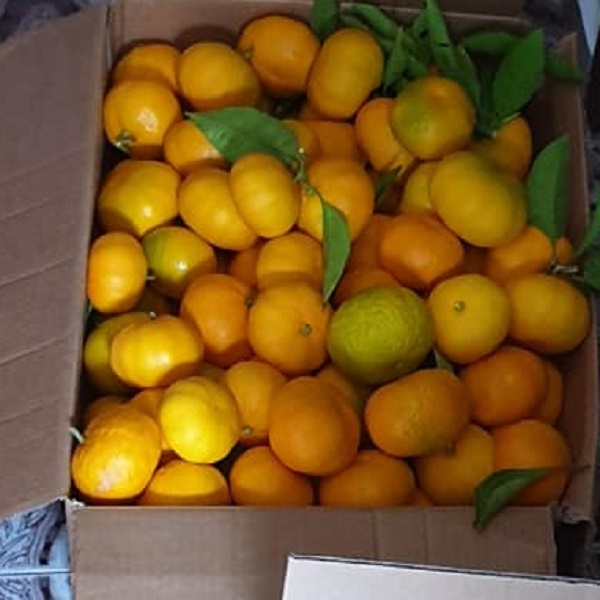
Život bi mogao KONAČNO postati dovoljno neugodan da će Hrvati prosvjedovati
‘Mogu li se Hrvati ikad ujediniti ako nisu bili napadnuti’?
Prije otprilike 18 mjeseci napisao sam članak pod nazivom ‘Mogu li se Hrvati ikad ujediniti ako nisu bili napadnuti’? Ovo je zemlja koja na ulice svog glavnog grada može primiti 550.000 ljudi kako bi dočekali heroje Svjetskog kupa, ali nimalo slične brojke kada su u pitanju prosvjedi. Hrvati se jako žale zbog načina na koji upravljaju ovom zemljom. Ali žale se u u kafićima i s ogromnom vojskom virtualnih ratnika. Ali kako ih natjerati da fizički marširaju na Zagreb, prosvjeduju i zahtijevaju promjene? To se jednostavno ne događa (ili vrlo rijetko i u mnogo manjem broju).
A jedan od razloga je to što je život u Hrvatskoj mnogima zapravo preugodan. Hrvatska ima jednu od najviših stopa vlasništva kuća i stanova u svijetu, što je ugodno u vrijeme krize. Ona također ima mnogo ljudi koji žive od turizma i zarađuju dovoljno za 4-5 mjeseci u godini da ne moraju raditi ostatak godine. I dok vlasništvo nad kućom i sposobnost uzgoja hrane ostaje, taj je laki prihod mnogima nestao - možda i zauvijek za mnoge.
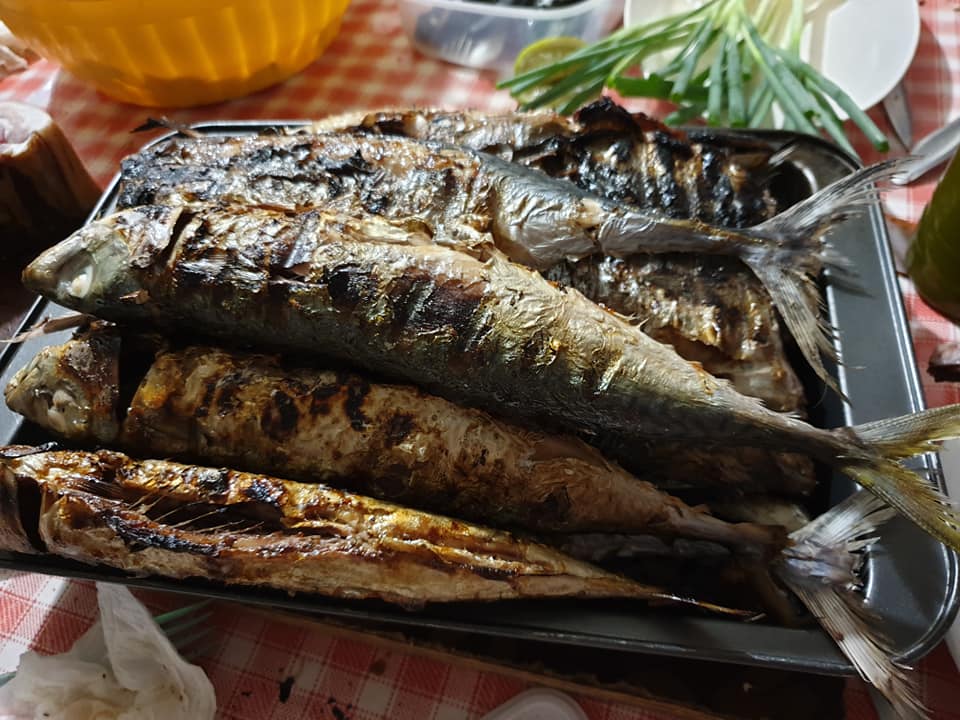
S čak 300.000 pretpostavljenih izgubljenih radnih mjesta, kao odgovor na početne vladine ekonomske mjere, bilo je jasno da život ne samo da će postati manje ugodan, već i za mnoge dovoljno težak da Hrvate dovoljno razljuti da nešto učine. Jedna od najboljih inicijativa posljednjih godina u Hrvatskoj bila je Udruga Glas Poduzetnika, koja okuplja privatne poduzetnike te koji broji gotovo 60.000 članova i koja je već postigla veliki uspjeh svojim usuglašenim pritiskom na vladu za učinkovite mjere i reforme. Njihov rad možete pratiti na našim stranicama.
Mainstream mediji sada aktivno provode kampanje za Reforme Odmah, a ovaj članak iz 24 sata, naprimjer, daje sjajan pregled izbora pred kojima se nalazi Hrvatska - Hrvatska ne može više čekati, trebamo reforme odmah.
Kralj Vili kao prototip, vrijeme je za sljedeću generaciju političara
Da ste prije ove korona krize ljude na ulici u Hrvatskoj pitali kako će se hrvatska Vlada nositi s njom, ne biste se osjećali samouvjereno. Jedna od najboljih stvari koja se dogodila Hrvatskoj je što je ostala sigurnom, uklanjanje prethodnog ministra zdravstva zbog navodnih (moja nova omiljena riječ) nepravilnosti u njegovom portfelju imovine. Hrvatska je dobila novog ministra zdravstva Vilija Beroša, posvećenog, kvalificiranog, odlučnog, transparentnog, komunikativnog i pristupačnog. Postoji samo nekoliko zemalja koje su se suočile sa zdravstvenom prijetnjom korone poput Hrvatske, a primjer Beroša i njegovog tima pokazao je da je moguće nešto što se rijetko viđa – ministar koji radi za narod, a ne za sebe.
I budući da su to vidjeli, glas javnosti zahtijevat će više takvih političara. Uhljebistan je zvijer, a za ubiti tu zvijer trebat će nam više od korone i ekonomske katastrofe. Ipak, nikad nije postojala bolja prilika da se potaknu promjene. Uklonite Uhljebistan, vratite se korijenima Hrvatske sa angažiranom dijasporom spremnom ulagat i budućnost Hrvatske je nevjerojatno svijetla
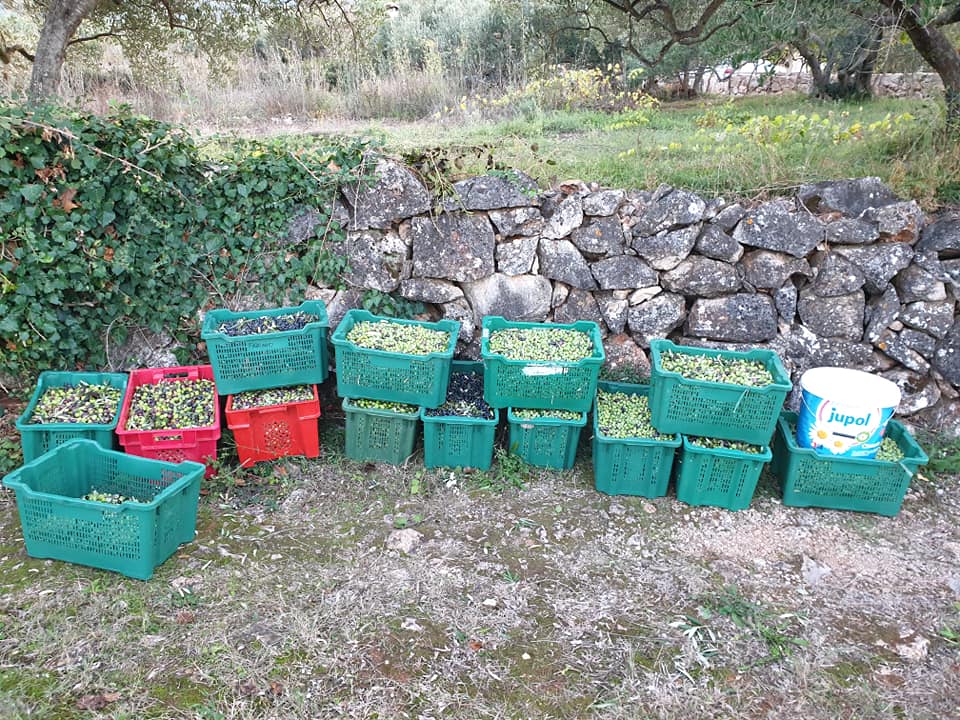
Transparentnost u digitalnoj Hrvatskoj 2.0 nakon korone - ubrzani proces
Borba protiv Uhljebistana ima sve snažnijeg saveznika – digitalizaciju i transparentnost. Ova će kriza samo ubrzati digitalizaciju Hrvatske, kao i uklanjanje potrebe za tolikim procesima koji nisu samo neučinkoviti, već dolaze i sa zdravstvenim (infekcijskim) rizikom i pomažu u financiranju Uhljebistana. Era nabujale birokracije i onih dragih biljega već je bila u posuđenom vremenu, ali sada kada ljudi vide da je ne samo lakše učiniti toliko mnogo stvari putem interneta, nego i mnogo učinkovitije, uspostava postkoronske digitalne Croatia 2.0 će ubrzati.
Šalio sam se s djecom neki dan da smo, kad sam išao u školu, koristili kredu i ploču. To je nešto čega se, naravno, sjećaju, ali hoće li djeca nakon 5 godina? Prisilna prilagodba školovanja preko weba u velikoj mjeri predstavlja veliki uspjeh i nudi neke intrigantne mogućnosti za napredak, kako u razvoju kućnog obrazovanja tako i u pristupu boljem obrazovanju iz drugih zemalja.
A više transparentnosti i digitalnih alata smanjit će i mogućnost Uhljebistana da zahtijeva mito u svakom koraku, potiho kako to čini sad.
Od ekonomije masovnog turizma do poljoprivrede, IT-a i elitnog turizma
Hrvatska ima izvrstan IT sektor, koji se natječe na globalnoj razini u mnogim aspektima. Ovo se ponovno odvija uglavnom kod kuće i lokalno, i vjerojatno će se i dalje širiti i stvarati sjajan prihod za Hrvatsku i njene IT poduzetnike. Na trenutak samo zaboravite na današnju Hrvatsku i zamislite novi model (kada bi se mogli riješiti većine Uhljebistana), koji zamišljam da bi mogao izgledati ovako.
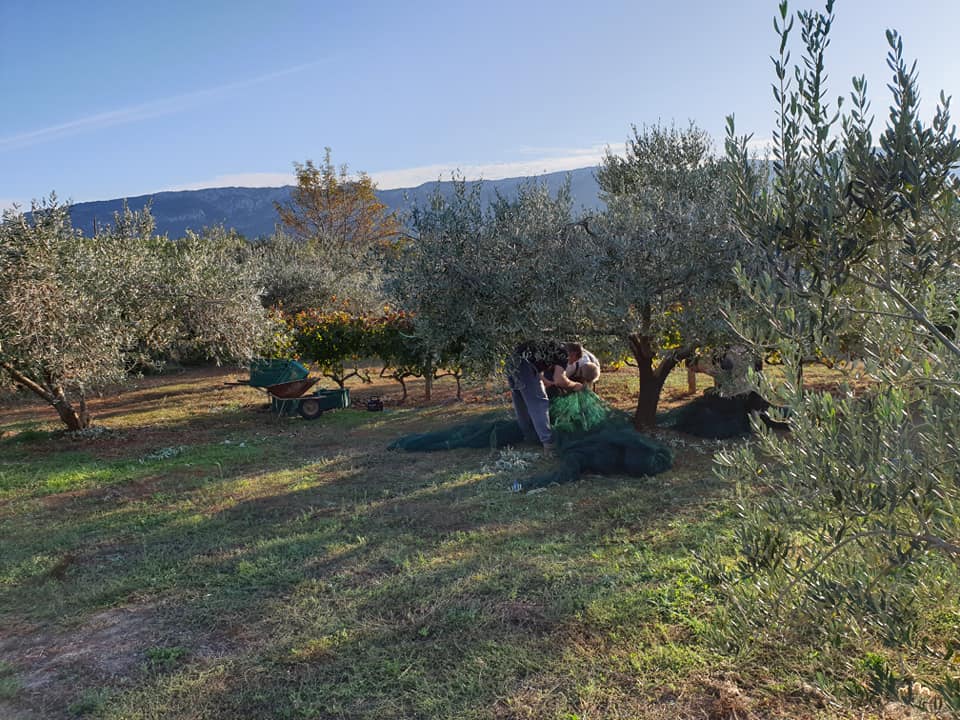
1. Poljoprivredni sektor koji zapošljava mnoge, hrani zemlju i generira izvoz, a sustav za dostavu na kućnu mrežu dovodi najbolju hrvatsku kvalitetu izravno na vaša vrata.
2. IT sektor koji će procvjetati omogućavajući Hrvatskoj stvaranje lokalnih radnih mjesta i ostvarivanje značajnog prihoda
3. Zemlja u kojoj je masovni turizam stvar prošlosti, u kojoj si i domaći turisti mogu priuštiti mirniju obalu po prihvatljivijim cijenama.
4. Država čija je izvanredna prirodna ljepota magnet za eilte, a ne za masovni turizam. I da ne zaboravimo medicinski turizam, još jedan neiskorišteni dragulj Hrvatske.
5. Država čija izuzetna prirodna ljepota i jedinstveni životni stil čine raj za digitalne nomade i udaljene radnike – niša koja će se eksplodirati u narednim godinama
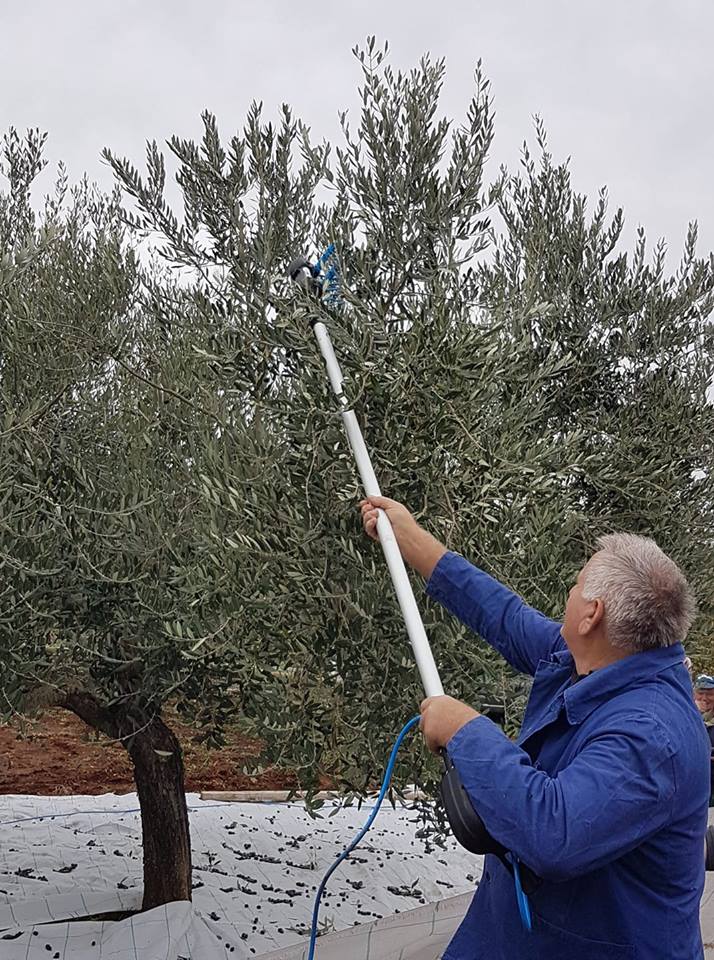
Država koja će se oslanjati na sebe i vlastite resurse. U kojoj će biti puno sretnih ljudi iz njihove lokalne zajednice, baš kakav je i moj Franko.
I koliko će štete sve to nanijeti okolišu u usporedbi s našim trenutnim praksama i strategijama?
Bernardić Says Croatia Needs "Full Restart"
ZAGREB, April 29, 2020 - Social Democratic Party (SDP) leader Davor Bernardić said on Wednesday that Croatia now needed "a full restart", as the country simply must change itself.
"We are today aware that the things that mattered three months ago are no longer valid, we are aware of that the huge state administration is of no use for Croatia," Bernardić said among other things, after he laid a wreath at the grave of the SDP leader Ivica Račan on the occasion of the 13th anniversary of Račan's death.
Commenting on the current situation, Bernardić said that the coronavirus would go away, and the problems would remain the same.
In this context he called for "a full restart" of Croatia which had to change itself.
We cannot live off tourism and the consumption of imported products. Croatia must be fully digitised and increase local production and capacities, the SDP chief said.
He praised Račan for having been the most successful prime minister of Croatia underscoring that during the term of his government from 2000 to 2004, Croatia's cumulative growth was almost 20%, with growth rates higher than, for instance, in Czechia, Slovakia, Hungary and Slovenia.
Bernardić said that during Račan's premiership, state-of-the-art motorways were built in Croatia and wages and pensions increased by more than 50%.
Račan, who was born on 24 February 1944 in Ebersbach, Germany, died in Zagreb on 29 April 2007, having retired from politics due to a grave illness.
After Račan's death, Zoran Milanović was elected as the SDP president in June that year beating his rivals Željka Antunović, Milan Bandić and Tonino Picula.
After losing the 2015 parliamentary election Milanović stepped down as the party leader and was succeeded by Bernardić.
More SDP news can be found in the Politics section.
Budget Projections on Thursday “Won’t Be Nice”
ZAGREB, April 29, 2020 - The government will outline new macroeconomic and budget projections on Thursday, and Finance Minister Zdravko Marić warned on Wednesday that the figures would not be nice due to the consequences of the COVID-19 epidemic.
"Unfortunately, this is our reality, those consequences of the coronavirus" Marić said while coming to ta meeting of the inner cabinet in Zagreb.
A new national programme of reforms and convergence plan are to be added to the government's agenda on Thursday.
Marić today declined to answer questions whether the downward trends would be expressed in double-digit figures.
He dismissed reporters' speculations that the government underperformed in the implementation of the national reforms programme, and countered that the implementation had to date been at a level of 80% while the remaining part could not be fulfilled due to the outbreak of COVID-19.
Marić pointed out progress in making the country ready for the adoption of the euro.
More economic news can be found in the Business section.
Croatian and Slovenian Ministers Discuss Tourism
ZAGREB, April 29, 2020 - Croatian Tourism Minister Gari Cappelli and his Slovenian counterpart Zdravko Počivalšek on Wednesday met in Zagreb for the talks on the tourism industry in the circumstances marked by the COVID-19 epidemic.
In light of the fact that Croatia and Slovenia have been cooperating for years in the joint promotion of their tourist industries, the two ministers underscored the importance of the further cooperation in that sector expressing hope that the epidemiological situation would soon allow for the opening of the borders.
They discussed the idea of enabling travels for tourist purposes provided that protocols for such travelling could be prepared, as suggested at a recent video conference of the European Union's tourism ministers.
Cappelli and Počivalšek also considered the availability of financial means for the stronger positioning of tourism through the future EU financial frameworks so as to maintain the stability of businesses in this sector.
Tourists from Slovenia are one of the most numerous and loyal visitors to Croatia and therefore we are talking about the possible reopening of the borders and making it possible for Slovenians to go on holidays in Croatia provided that there are all necessary measures in place, the Croatian minister said.
In this context he recalled that Slovenians have property in Croatia and are trying to find a solution how to visit their property in compliance with the epidemiological measures imposed due to the COVID-19 epidemic.
Počivalšek noted that about 110,000 summer houses or second homes are owned by Slovenians in Croatia and that it would be "suitable to allow them to visit their summer homes."
Počivalšek said that Slovenia was optimistic about partial re-establishment of the cross-border traffic for travellers between the two countries in late summer in compliance with the health protection measures.
More news about relations between Croatia and Slovenia can be found in the Politics section.
PM Plenkovic, Take Care of Parafiscal Charges, Seasonal Employers and Workers, Loans for Groups at Risk
April 29, 2020 - Glas Poduzetnika suggested the measures for May to the Croatian Prime Minister -take care of parafiscal charges, seasonal employers and workers, and loans for groups at risk.
The May package of measures should respond to open questions that were not addressed in the April set of measures, and finally to solve the problem of parafiscal charges that burden the economy with nine billion kunas per year.
In the first two weeks since its foundation, the Glas Poduzetnika Association approved membership requests to 9,000 members, entrepreneurs, self-employed and physical persons, thus having become the largest unforced association of employers and entrepreneurs in Croatia. The goal of the Association is to provide the welfare not only to its members and their employees but also to the Croatian economy and society in full. The Association has short-term, mid-term, and long-term goals, addressing them through concrete demands and measures that they propose to the competent institutions.
"Yesterday, we sent Prime Minister Plenkovic the requirements for the measures to be included in the May package, along with the main measures that will allow the future sustainable development of the Croatian economy and society," said Hrvoje Bujas, President of the Glas Poduzetnika Association. "Since the Prime Minister did not respond to the previous requests of the Glas Poduzetnika Association, including the open letter that we sent on 17th April 2020, we believe that we still need to make requests through the media. Our demands are necessary for the survival and development of the economy, entrepreneurship, and society as a whole."
The Association's demands addressed to Prime Minister Plenkovic for six measures to be defined by the May package are the following:
- Permanent cancellation of all parafiscal charges, including the introduction of voluntary membership in HGK, HOK, and HTZ
- VAT payments upon the invoice collection should be a permanent measure for all companies. What we have now is only a temporary measure until 20th June, and there is a risk that Tax Authorities will start with the charge the VAT on 20th June, regardless of whether the entrepreneur will collect the invoice or not, and it can create a lot of problems for them.
- Moratorium on loans and leasings form 6 to 18 months as needed, with minimal (up to 1%) interests for the mentioned period for all entrepreneurs, self-employed, and citizens at risk.
- Including the seasonal self-employed and seasonal workers in the set of measures
- Availability of COVID-19 loans to small accommodation providers, which they need to survive until the next tourist season
- Termination of inspectors' repression—State Inspectorate has to be advisory body first, and then repressive (and not only repressive as it is now), with clear and unambiguous rules of treatment. They should issue warnings for minor mistakes instead of giving fines, with a reasonable deadline to correct the irregularities.
Also, non-related to the May set of measures, the Association demands to initiate activities in the following areas as soon as possible:
- Reduction and reorganization of public administration and local governments as well as reduction of tax and non-tax charges for economy
- Full transparency of revenues and expenditures of all state administration and local government bodies, as well as public firms
- Digitalization and automation of the processes and services of entrepreneurs and citizens that are essential for progress and ensure global competitiveness
- Improving the effectiveness of the judiciary system through digitalization and ensuring its depoliticization and independency
***
The GLAS PODUZETNIKA Initiative started as a citizens' self-organized group, most of which are small entrepreneurs, after the announcement of the first set of Government's measures, which the organizers deemed insufficient. The Initiative assembled more than 100,000 entrepreneurs, small business owners, self-employed, and the employees in the private sector in less than 15 days, drawing the media spotlight with its uncompromising requests and appearances. Considering this, GLAS PODUZETNIKA positioned itself as a relevant factor in public discussions aimed to determine Croatia's new economic direction. Its position was also confirmed by the Government of the Republic of Croatia, has included some of the Initiative's suggestions in the second set of economic measures, thus confirming Initiative's undeniable influence. At the request of the initiative's members, the GLAS PODUZETNIKA Association was established, gathering more than 9,000 members in two weeks since its foundation. More than 120,000 Croatian citizens support the Association.
For the latest from the Glas Poduzetnika initiative, follow the dedicated TCN section.
You can also join the 55,000+ people in the Glas Poduzetnika Facebook group.
Coronavirus: Can We Go to the Coast This Summer? "We Hope So"
As Croatia begins to gradually loosen its anti-epidemic measures, more specifically in three phases, many have begun to hope that normality and the chance to go to the coast this summer are a possibility. However, any move that comes too soon could result in another wave of coronavirus infections...
As Poslovni Dnevnik writes on the 29th of April, 2020, if we move too quickly with the loosening of the anti-coronavirus measures, we will ruin everything we've achieved so far, and then we will need to return to lockdown very quickly, Zvonimir Frka-Petesic said this morning on HRT, talking about the gradual loosening of the protective measures introduced last month because of the ongoing coronavirus epidemic, which Croatia has handled excellently.
"Our goal is to sustainably loosen the measures," added Frka-Petesic, adding that he disagreed with the opinion of some that the measures in Croatia are too stringent when compared to some other countries.
"I fear that those countries that are loosening things far more quickly than we are will have to deal with what epidemiologists call the second wave [of the pandemic]. We don't want that,'' he said.
An epidemiologist from the Croatian Institute of Public Health, Iva Pem Novosel, said they were mostly satisfied with the behaviour of citizens after the loosening of the measures began, but she stated that she wanted to remind people once again that it is very important to continue to stick to all of the measures and recommendations that are still in place, as the danger has not yet passed.
Asked if we could go to the coast this year, Frka-Petesic said he hoped that we'll be able to.
"We're working on it, we're preparing for the season," Frka-Petesic replied, adding that Croatia has never had less competition across the Mediterranean than it has now.
"I believe that given these results, we must all be wise, sensible, and keep our contacts to a minimum, we should keep everything to only what is necessary so that we can all go to the coast together," Pem Novosel told HRT.
For all you need to know about coronavirus in Croatia, follow our dedicated section.
PHOTOS: A Split Spring in Self-Isolation
April 29, 2020 - How does Split look during self-isolation? A collection of photos from our readers.
On day 41, 50, or 500 in self-isolation (depending on your mood), we're relatively sure the flood of emotions everyone is feeling range from the positive 'there is a light!' to those of us going through the motions murmuring 'I'm okay...' to the inevitable 'WAKE ME UP FROM THIS NIGHTMARE'.
All emotions at this time, of course, are warranted.
Those of us in Split, however, are quite lucky. After all, there could be far worse places to be stuck. Not only do we have the Adriatic Sea at our fingertips, but we're surrounded by mountains, forests, and ancient buildings that fuse to form the masterpiece that is the backdrop of our quarantine dreams.
While we are still advised to #stayhome, solo walks and ventures outside are still permitted so long as groups of people don't gather. And with the quintessential spring weather we've been having, it's hard not to get outside to grab a small dose of Vitamin D - even if it's from the comfort of our balcony.
Our always fabulous TCN readers sent in photos of Split over the last month as the typically busy streets emptied to flatten the coronavirus curve.
Whether you're here now or dreaming of your next trip, Split will always be this beautiful.
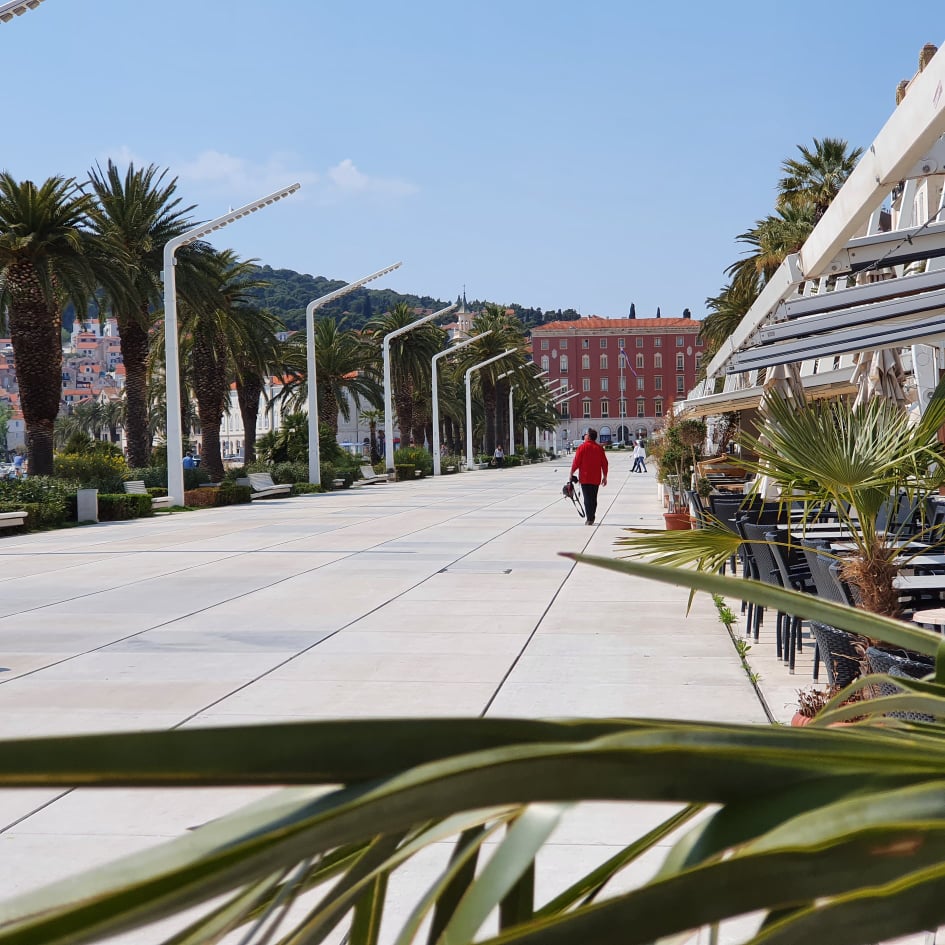
The Riva, almost unrecognizable.
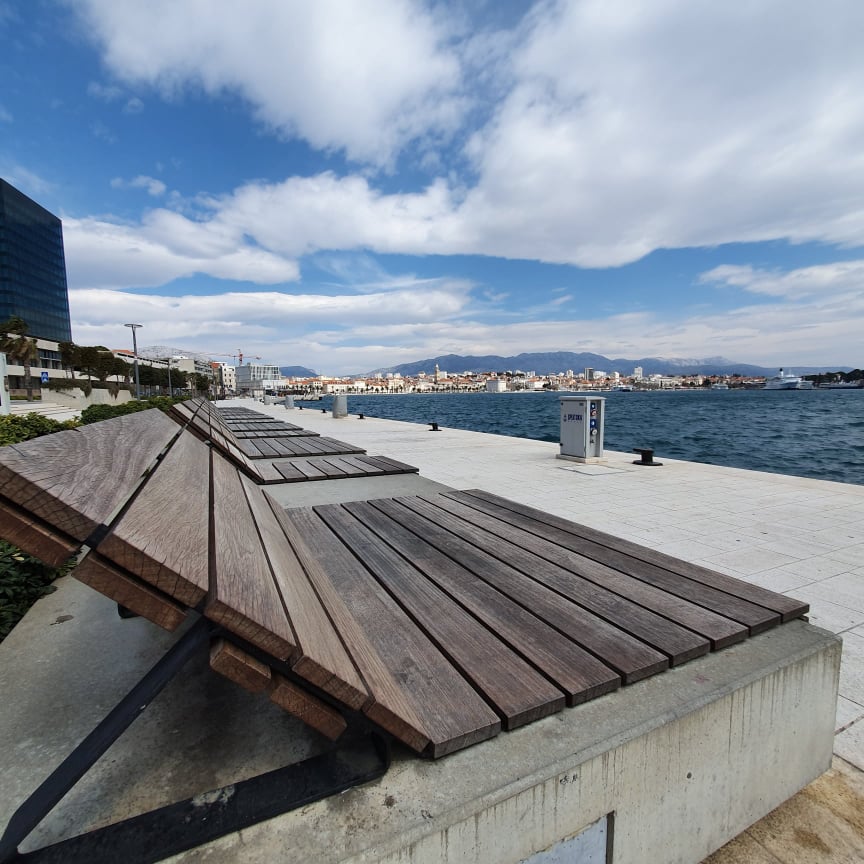
The West Coast without a soul in sight.
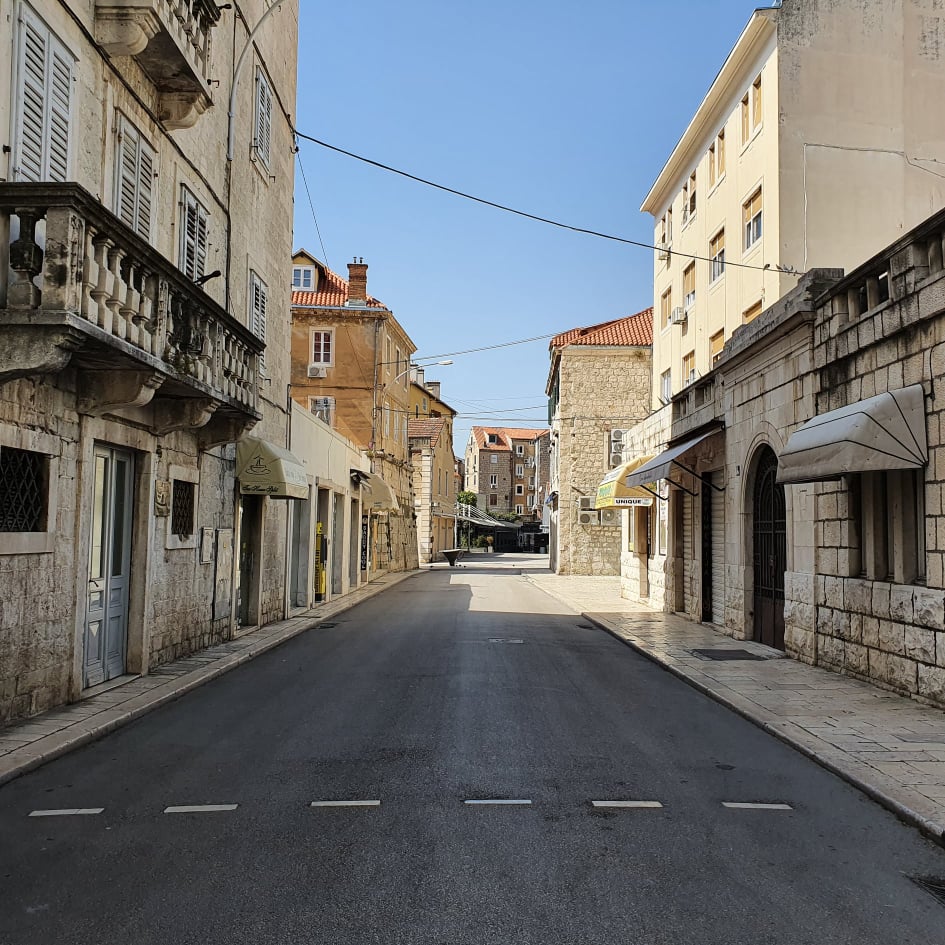
No visitors at FroggyLand, either.
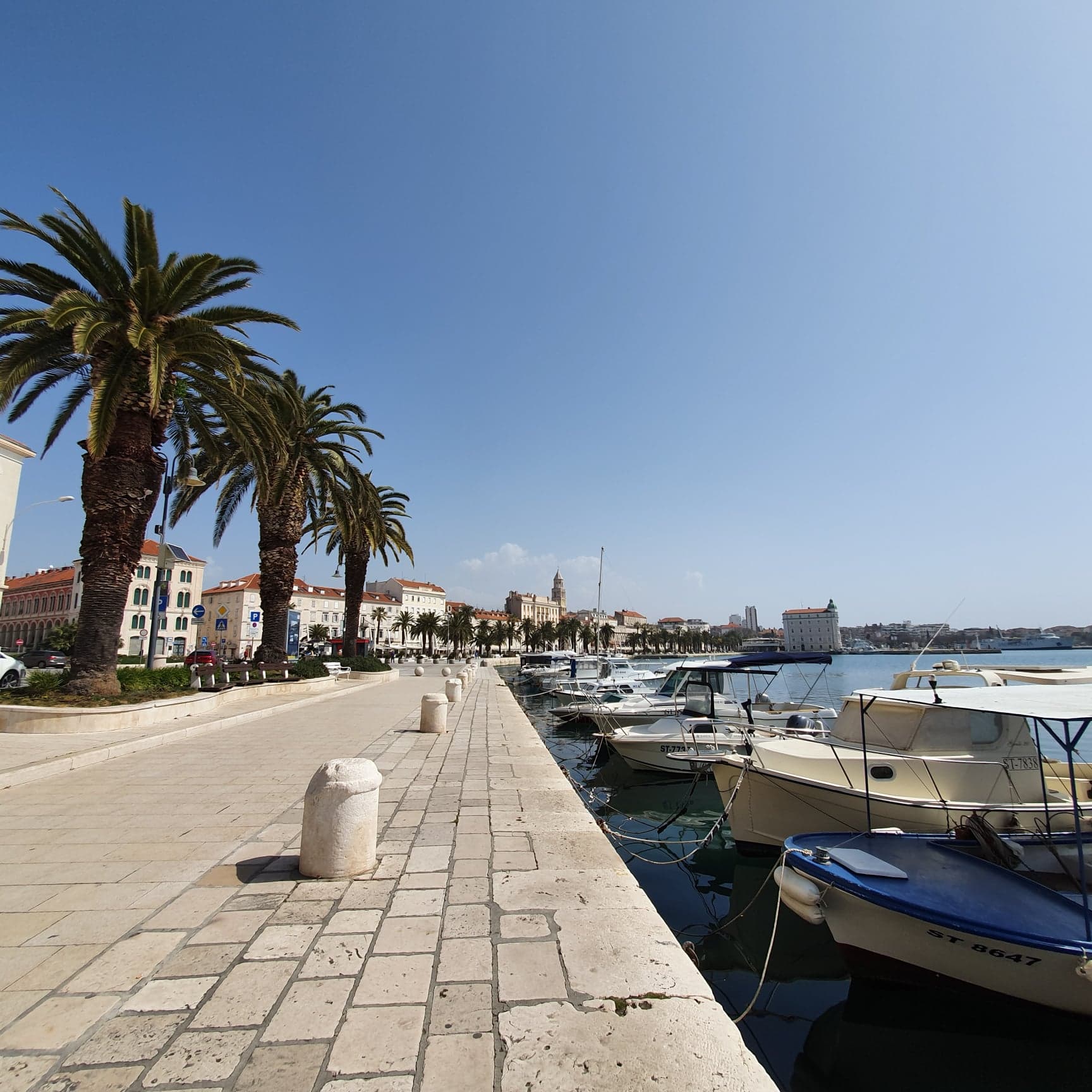
The benches that usually host groups of Croatian singers in the summer are quiet in spring.
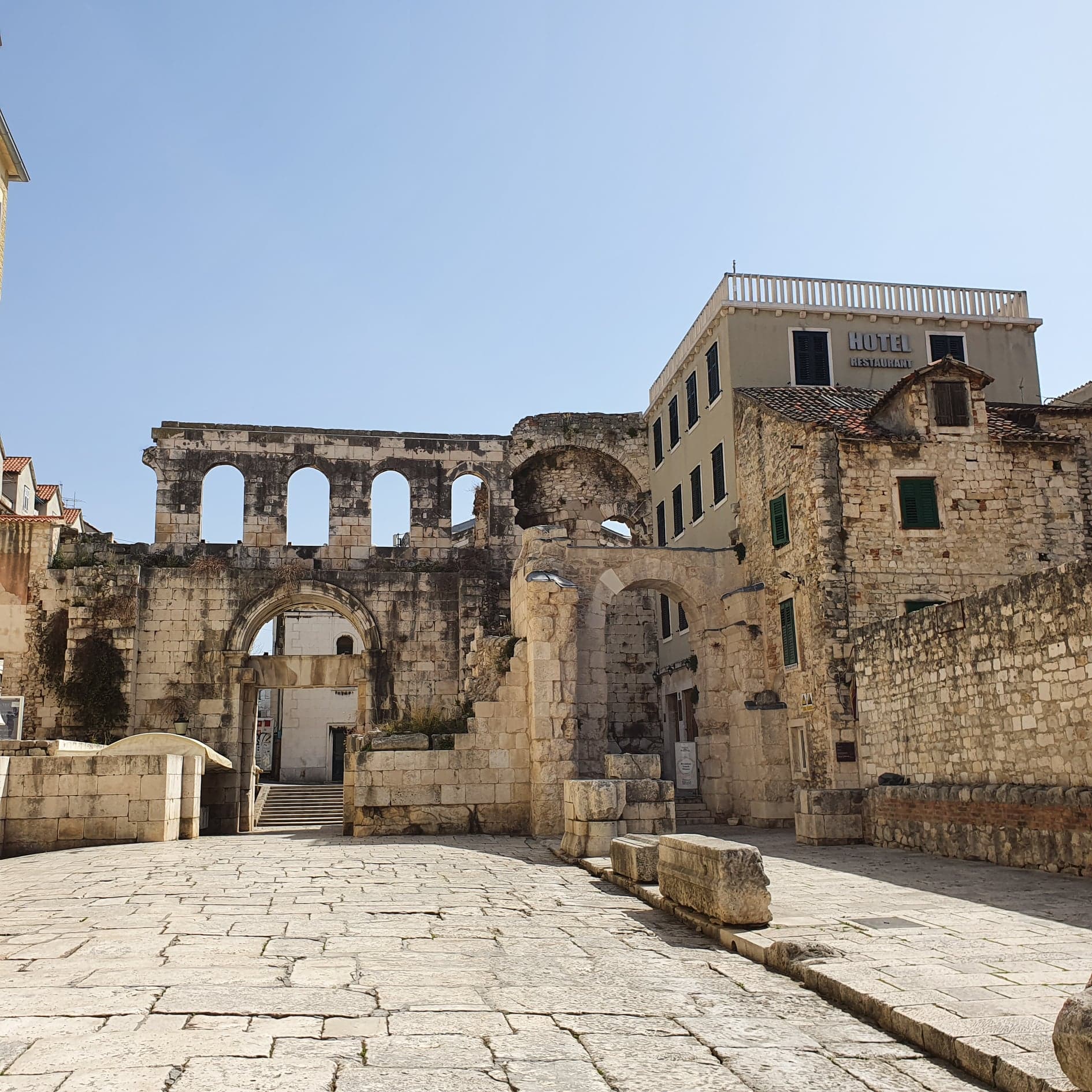
The Silver Gate of Diocletian's Palace.
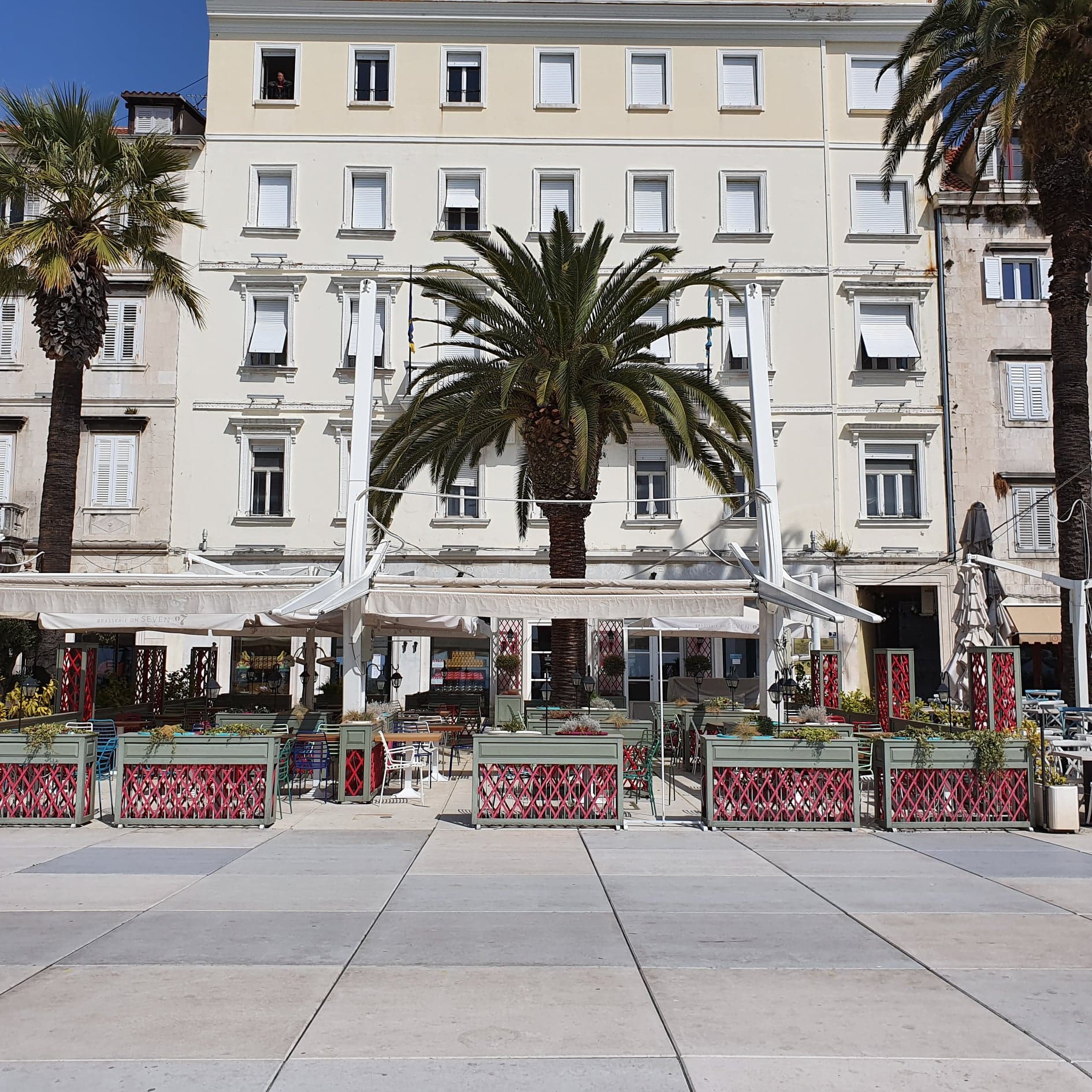
Riva favorite Brasserie on 7. We can't wait to share a coffee with you here again.
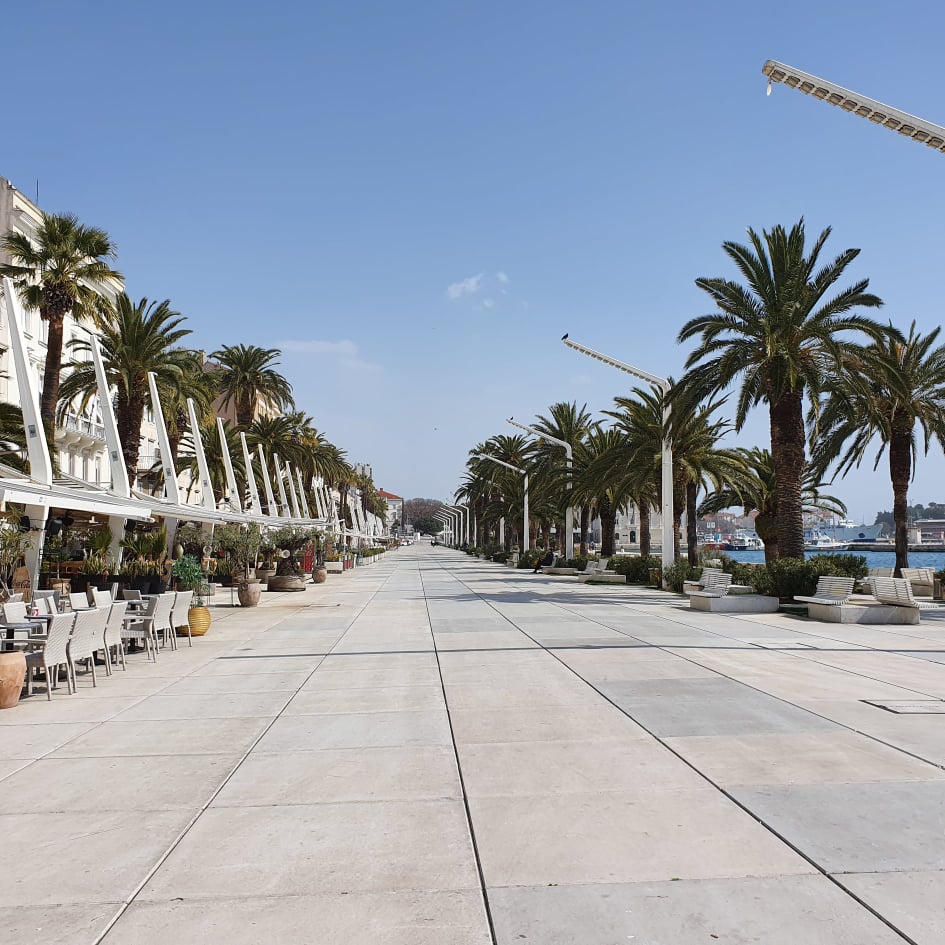
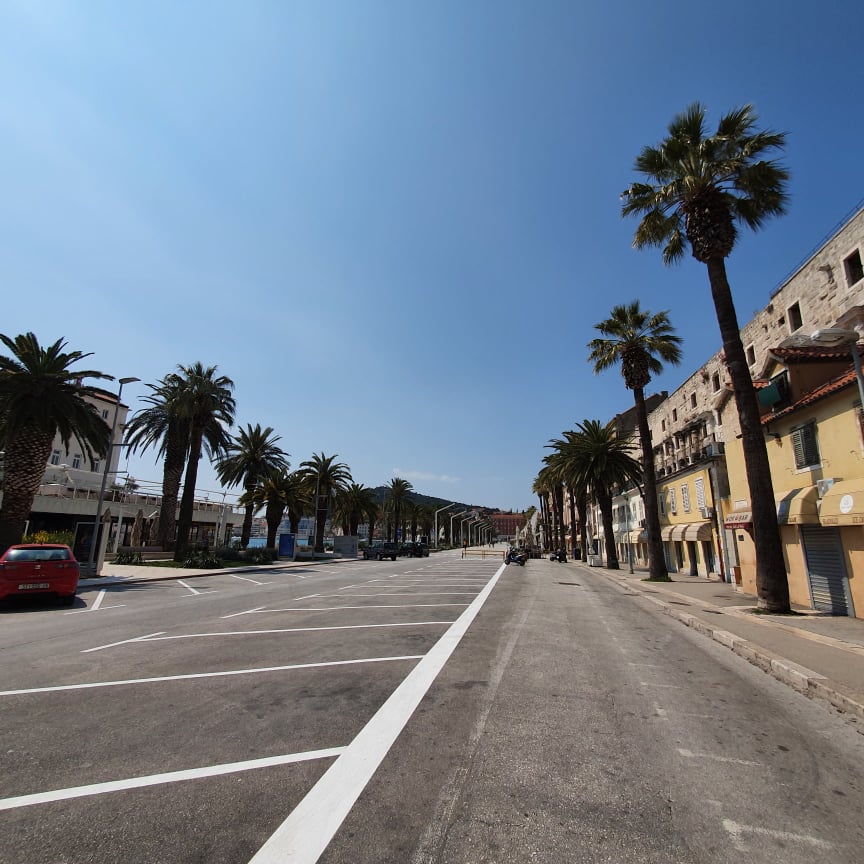
The parking for the Riva, usually lined with vehicles, mopeds, and shoelace dealers.
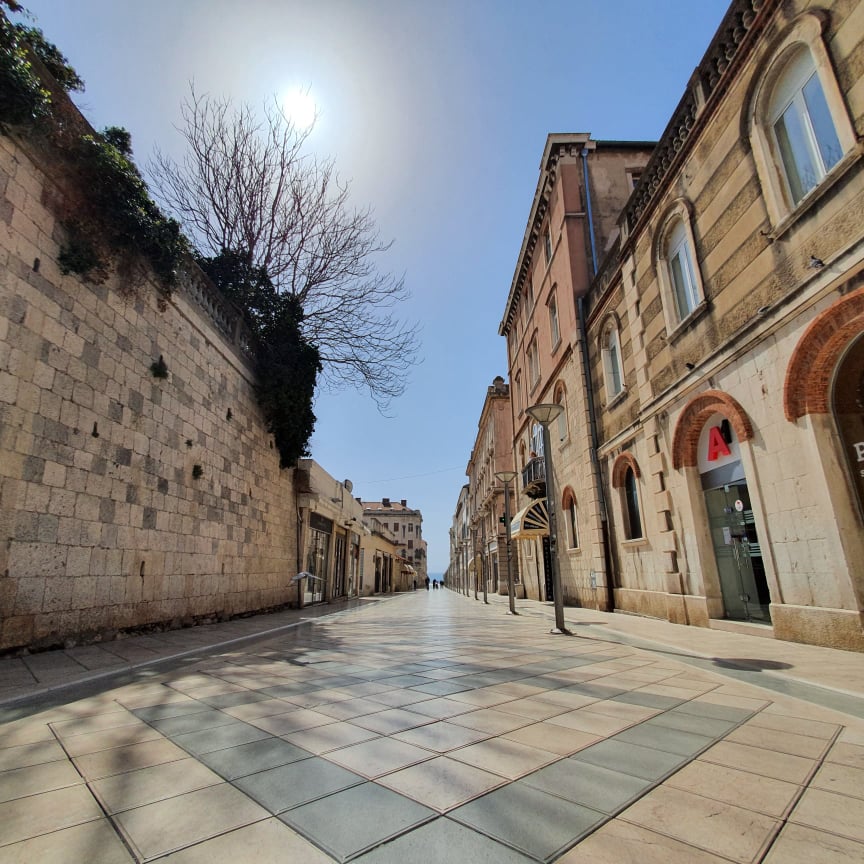
Vacant Marmontova.
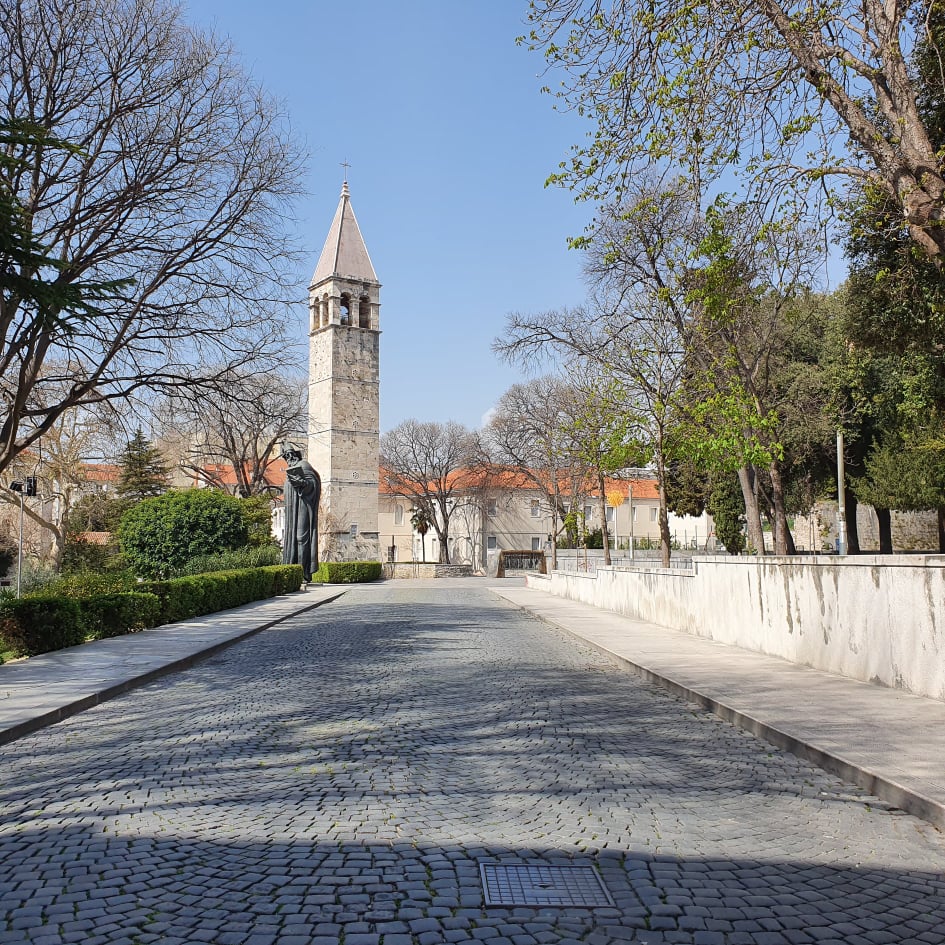
Grgur Ninski looking extra regal.
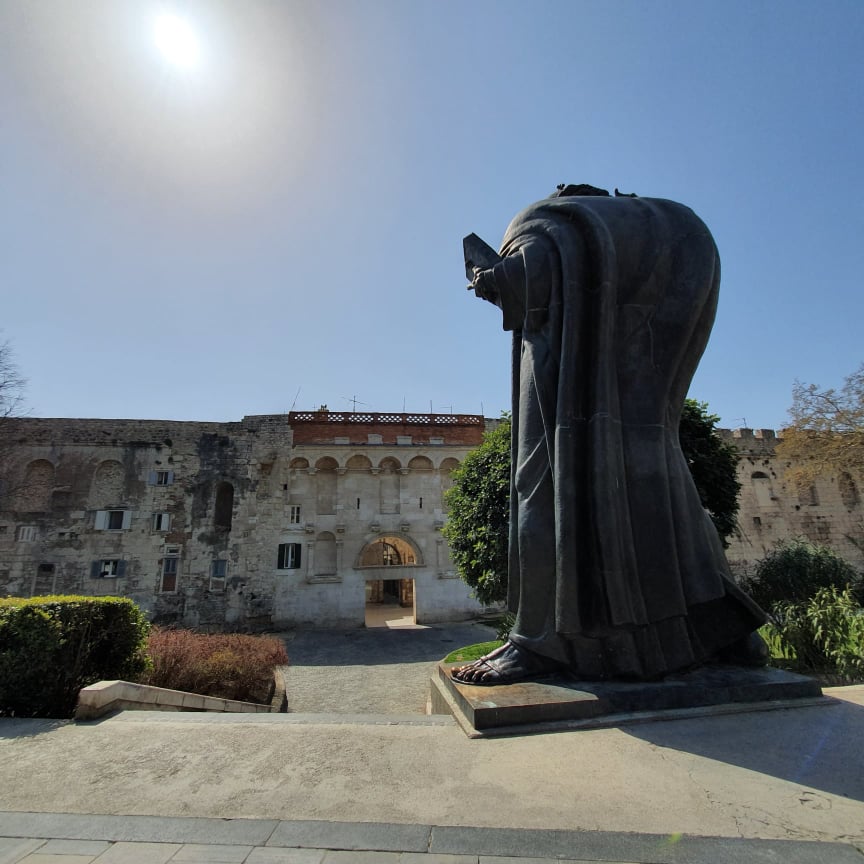
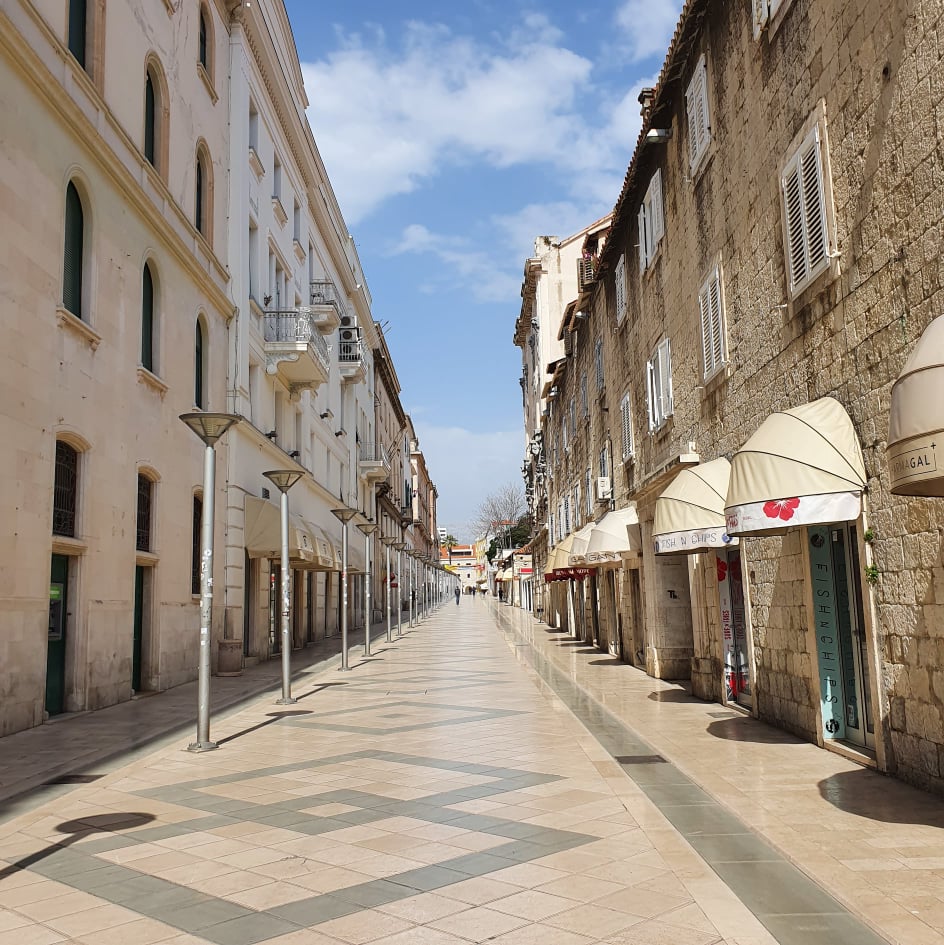
Split's famous shopping street... without shoppers.
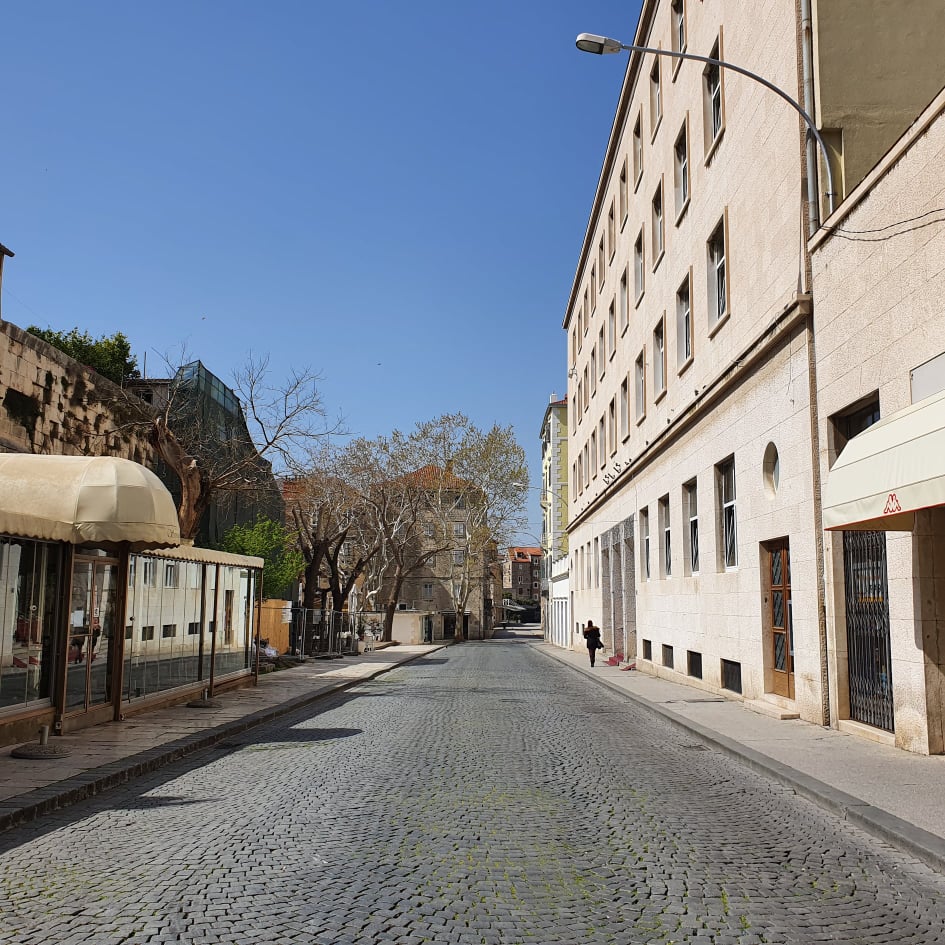
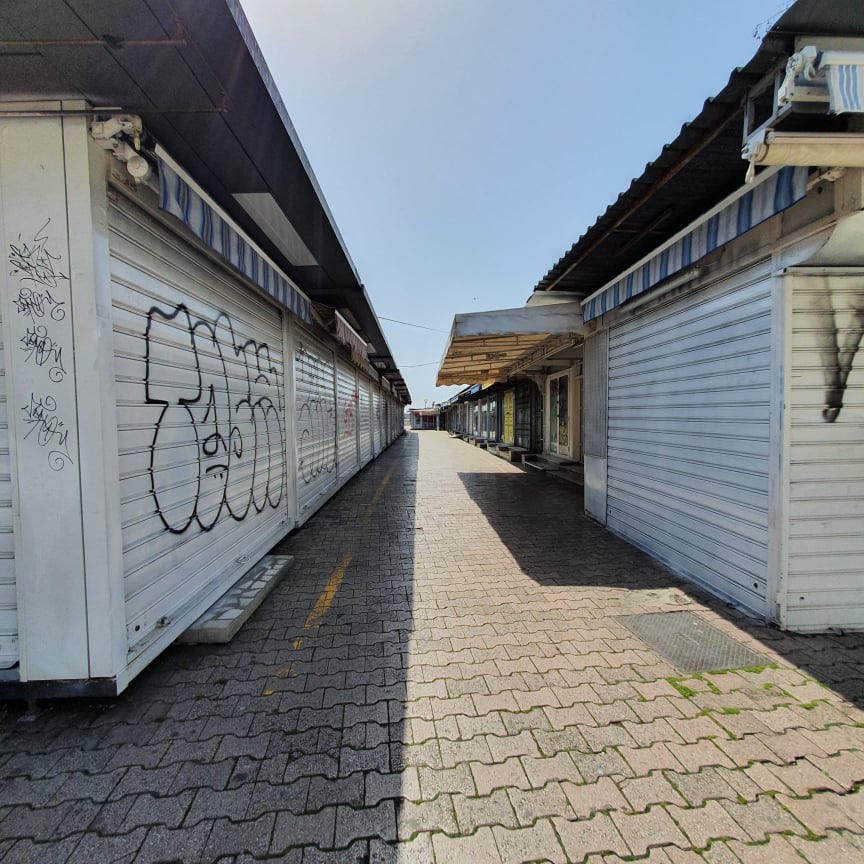
Usually bustling with buyers looking for everything from smoked meat to underpants.
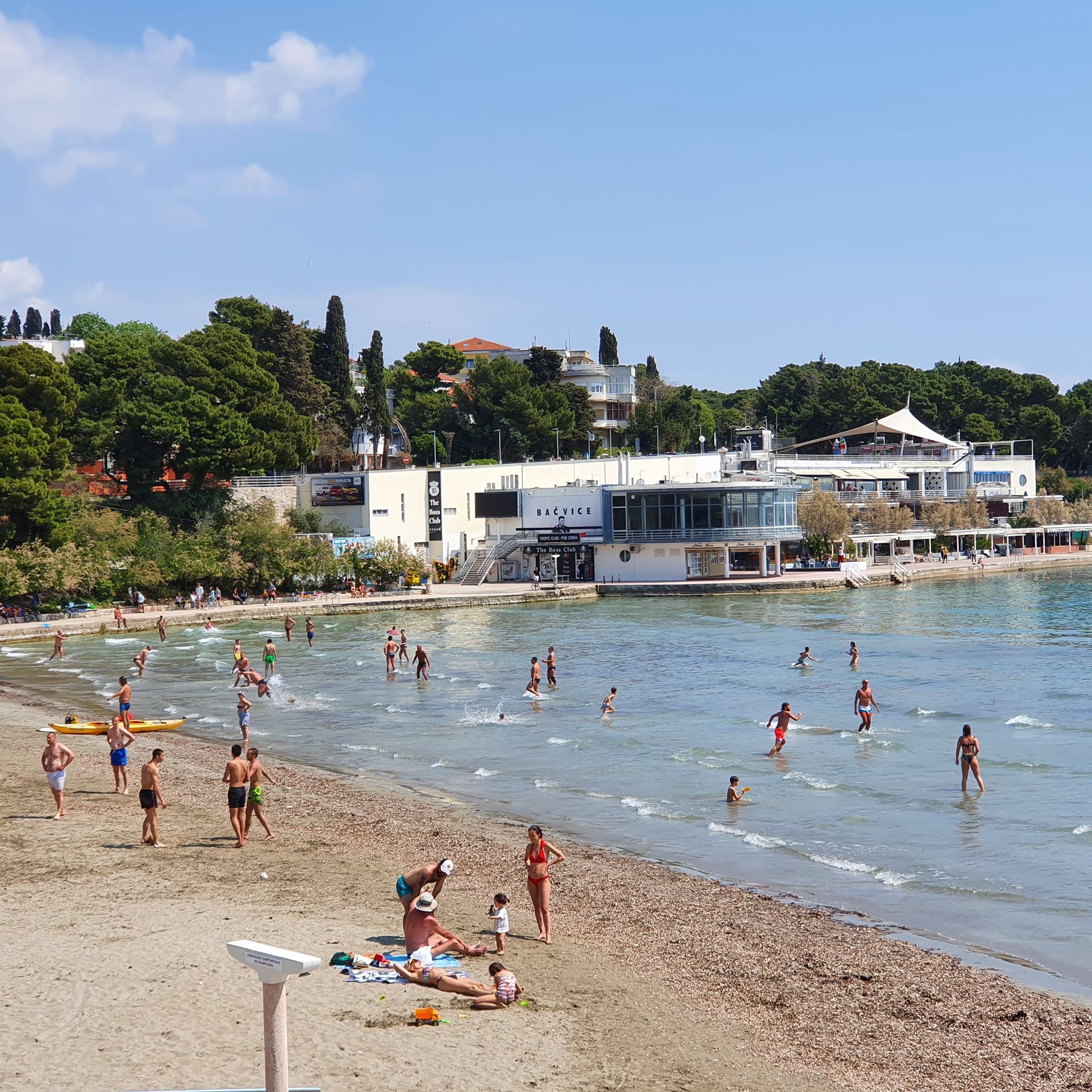
And a busier Bacvice Beach at the first sign of warmer weather.
To read more about lifestyle in Croatia, follow TCN's dedicated page.
Government Wants to Boost Food Production and Employment in Rural Areas
ZAGREB, April 29, 2020 - Prime Minister Andrej Plenković said in Osijek on Tuesday that the government had adopted a series of quality measures and laws to help the agricultural sector, stressing that the objective is to boost the production of quality food, achieve a decent life and increase employment in rural areas.
"In this term in office, we have adopted a string of quality legal solutions, we had a significant budget framework for agriculture, we have implemented quality measures and incentives for farmers, we have absorbed European funds in the context of a debate on a new joint budgetary policy, also as a country that is presiding over the European Union," Plenković said after a meeting held at the Osijek Faculty of Agriculture on the topic of farming activities.
The meeting with members of the local government, the academic community and business people was used to exchange opinions about what the government was doing to help the farming sector.
Gov't wants National Agriculture and Rural Development Strategy to be completed as soon as possible
The government wants to have the National Agriculture and Rural Development Strategy completed as soon as possible, Plenković said.
The future strategy should be conducive to the accomplishment of the four goals: enhancing the productivity and making the agricultural production resilient to climate change, boosting the competitiveness of the national agricultural and food producing system, revitalising the economy and improving the living conditions in rural areas, and encouraging innovations in the farm sector.
Plenković said the academic community and experts must play a special role in that.
Aside from Plenković, Agriculture Minister Marija Vučković and Regional Development and EU Funds Minister Marko Pavić, the working meeting in Osijek was also attended by executives of companies whose core business is farming production, representatives of the local university, officials of the City of Osijek, The Osijek Agriculture Institute, associations of pig farmers, cattle breeders, fruit growers and other stakeholders in the farm sector and food production.
County Prefect Ivan Anušić thanked the government for the support to projects implemented by Osijek Baranja County and Slavonia.
More election campaign news can be found in the Politics section.
#CroFact: Facts and Curiosities About Croatia on Social Media
ZAGREB, April 29, 2020 - The Croatian National Tourist Board (HTZ) has posted new promotional content under the title "#CroFact" on social media, including lesser known facts and curiosities about Croatia, additionally presenting Croatia to past and future visitors.
#CroFacts is the HTZ's new online presence aimed at their many fans on Instagram and Facebook. The HTZ plans to include the less known facts in quizzes, considering the popularity of such virtual challenges in the times of the coronavirus pandemic.
"Proactive relationships with our audience and the media in key markets are an important part of our activities, the goal of which is to increase the visibility and the promotion of Croatia in these challenging times. That is why we publish interesting content such as this, because in that way we can keep our presence and increase interest in Croatia in a large number of people. I am certain that facts such as the one that the first quarantine in the world was in Dubrovnik, or that the longest street in the world is in Vrbnik on the island of Krk, will intrigue and cheer up people, and remind all those who have already been to Croatia of all the scenery and particularities of our country, while prompting those who haven't into visiting soon," the HTZ director, Kristjan Staničić, stated in a press release.
Apart from the two mentioned curiosities, the top 10 facts and curiosities include the fact that Croatian doctor Andrija Štampar was one of the World Health Organisation's founders, and that Croatian scientist Faust Vrančić was the inventor of the parachute.
There is also information on the first "vampire" from Istria, the fact that Croatia was the motherland of the ancient Vučedol culture, the fact that Croatia has the shortest funicular railway in the world, as well as the fact that the tie was originally a scarf tied around the neck, worn by Croatian soldiers in the 17th Century.
Other included curiosities are a cathedral bell in Osijek, which has been tolling every Friday at 11 a.m. for the last 330 years, as well as the original Museum of Angels in Varaždin.
The HTZ invited their fans on social media to share their memories from Croatia. They also asked them what they missed the most, and the most frequent answers were: the crystal-clear sea, islands, the Croatian way of life, the culture of sipping coffee, the food, the City of Zagreb, Croatian people, summer, sun and sunsets.
More tourism news can be found in the Travel section.

